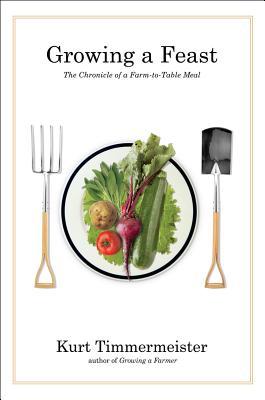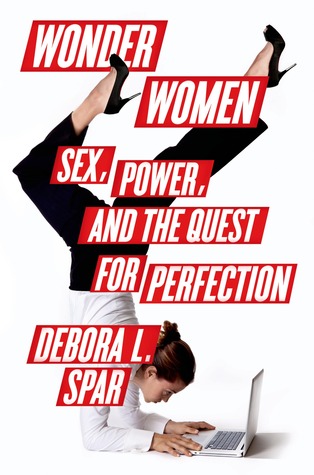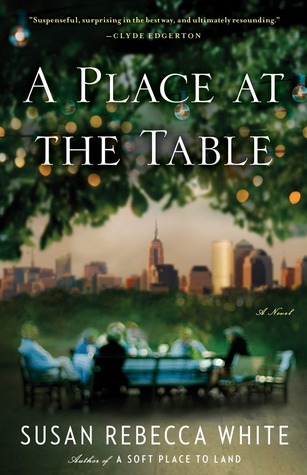
Defending Jacob by William Landay (book club)
I had a hard time getting into this book and I really did NOT like the author's style/tone of the book. After I read the first 1/4 of it I was interested enough in finding out what really happened that I did want to keep reading. The basic premise is that a 14-year-old boy, Ben Rifkin, is murdered. Head Assistant District Attorney, Andy Barber, is working with the local police on the case. The murdered boy attended the same school as Andy's son Jacob. Then Jacob is charged with the murder and Andy is forced to take a leave of absence from his job. As Andy helps fight for his son he and his wife begin to question everything they know, or don't know, about their son. Andy believes in Jacob's innocence to the very end - he can't even conceive that Jacob could do this. There is a twist at the very end that I won't give away, but I can say that I didn't see it coming.
Overall, I really didn't like the main character and narrator, Andy. He started to seem like a sociopath who didn't have any real emotions and it did make the reader question him and the family more. I also felt like the whole tone of the book was kind of harsh and almost vulgar like the author was trying really hard to make Andy out to be a hardass kind of guy. The storyline was interesting and since I read this for book club I think it will make for a really good discussion, but I don't think I would recommend this one. Other authors like Jodi Picoult have tackled similar issues better.

Growing a Feast: the Chronicle of a Farm-to-Table Meal by Kurt Timmermeister
Kurt Timmermeister lives on the 13-acre Kurtwood Farms on Vashon Island in Washington state. Kurt was a chef and originally bought the farm when it was smaller to try to grow more of his restaurant's food. He now is a full-time dairy farmer creating artisan cheese from his cow's milk. He also regularly hosts farm-to-table dinners for paying friends and guests that showcase all the abundance of food the farm creates. This book shows all the work that goes into one of these farm-to-table meals. It starts two years before the actual meal with the birth of a calf who will come to be one of Kurt's best milk producers. He also goes through the cheese aging process which can take up to 18 months. The book was very interesting and it shows just how much work goes into food production, which I think most people completely take for granted and are very removed from. He also includes a few of the recipes from the farm-to-table dinner at the end of the book. My only complaint was that the book was VERY detailed - lots of very detailed descriptions of every single activity and every step in every process, recipe, etc. I could have gotten the picture without so much detailed description. I still would like to read his previous book "Growing a Farmer" which chronicles the creation of Kurtwood Farms and how Kurt began living off his land as a farmer. Overall, I liked it, but it was a little too detailed and overly descriptive for me to rate it higher.
"I have slaughtered many animals - pigs and cows and chickens - here in the past decade. It has become part of my life now. It is only when someone walks around that corner and sees a large dead animal hanging that I am reminded how unusual this seems. That does strike me as somewhat sad. Most of us eat beef or pork most every day, and yet can spend our entire lives never observing the slaughter and butcher of the meat that will become our dinner." (p. 130)

The Edge of the Earth by Christina Schwarz
In 1898 a woman has very few options in the world. Trudy, who grew up in comfort in Milwaukee, Wisconsin, is expected to marry her long-time beau and friend Ernst and raise a family with him. But, when she is re-introduced to Ernst's cousin Oskar, she quickly falls in love with his impetuous and carefree nature. They quickly marry and move from Wisconsin to California to work as lighthouse keepers at Point Lucia. Oskar thinks working at the lighthouse will help spark his creativity; he wants to design an electric engine. Trudy just wants to experience something completely new and different. But, life is hard on an isolated lighthouse. There is the head light keeper Mr. Crawley and his family, as well as the second light keeper Archie Johnston, Mr. Crawley's brother-in-law. Trudy is quickly put in the role as teacher to the Crawley's four children. As Trudy and Oskar learn more about life at Point Lucia, they start to uncover a few of Point Lucia's secrets. One of those secrets will swiftly change Trudy's life forever.
This was a really fascinating book. The storyline was very unique and they way everything quickly unfolded made you want to just keep reading to find out what would happen next. I would have never guessed the secret Trudy uncovers and the end was a surprise too. Overall, I was very impressed with this book and I would highly recommend it!

Wonder Women: Sex, Power, and the Quest for Perfection by Debora L. Spar
I really enjoyed this book and thought that Spar brought up a lot of really good information. She grew up never identifying herself as a feminist, thinking feminism's work was done. After becoming one of the youngest female professors to be tenured at Harvard Business School and having three children, Spar began to realize that "having it all" wasn't as easy as she'd been told. She also quickly realized that feminism's work still had a long way to go. Wonder Women does a good job of combining statistics and data with Spar's personal experiences and stories from other women. Spar covers everything from dating, sex, and marriage, to trying to balance work and family, to how women view aging and beauty. While I did feel like the very end of the book was a little repetitive, overall I wholeheartedly agreed with almost everything she said. To me this book and similar ones like Lean In just go to show how much feminism has achieved, but how there is still a long way to go.
Some quotes I really liked:
"National networks and newsmagazines, for example, doted on the more extreme elements of radical feminism, highlighting Firestone's claim that 'pregnancy is barbaric,' or Atkinson's assertion that 'love has to be destroyed.' More mundane stories about women working for the ERA or supporting Planned Parenthood, by contrast, rarely made headlines, creating a massive asymmetry between the sprawling contours of the actual women's movement and popular perceptions of feminism. For women who were already in the movement, this unbalanced portrayal was a source of great contention. For those of us who were just a few years younger, however, what we saw was only the news. We grew up, as a result, with a skewed sense of feminism and a vague belief that all feminists hated men, denounced children, and refused to wash their hair." (p. 26)
"In 1982, the American Society of Plastic and Reconstructive Surgery classified small breasts as a deformity. Today, nearly 12 million Americans a year choose to undergo either cosmetic surgery (like breast implantation) or nonsurgical cosmetic procedures (like laser skin resurfacing). These numbers have increased by nearly 500 percent since the American Society for Aesthetic Plastic Surgery started collecting its data in 1997." (p.94-5)
"More profoundly, Wolf and others who write in this vein suggest that the myth of feminine beauty has been subconsciously designed to undermine the triumphs of feminism, to push women out of the spheres of power and, expensively and compulsively, back into the personal realm. Because when women aspire to an unobtainable and usually ill-fitting standard of beauty, they effectively consign themselves to years of fruitless labor and frustration, ceding power in the process to less-encumbered men." (p.97)
"One place to start might be with the raft of self-help books devoted to these issues [related to marriage]...Interestingly, the vast majority of these titles address themselves to women rather than men. And scarily, most adhere to a starkly conservative line, essentially exhorting women to revert to the Good Wife's rules. In The Proper Care and Feeding of Husbands, for example, Dr. Laura Schlessinger perkily tells her readers (millions of whom also tune into her internationally syndicated radio show) to 'forgive their husbands...for being men.' Women, Schlessinger scolds, are unhappy because they are self-centered; because they are focusing on what 'their men can do for them, and not what they can do for their men.' The simple remedy, therefore, is to treat husbands better, to 'roll over in bed, close your eyes, give him a big hug, and remember that, without him, you are only a sorry excuse for a person.' Not exactly Gloria Steinem stuff." (p. 166)
"Feminism, in other words, was meant to be about expanding women's roles and choices; about giving them freedom, for the first time in history, to participate with men as equals, and to use their minds and bodies and talents and energies as they desired. Yet somehow this expansive and revolutionary set of politicalgoals has been squeezed - or hijacked or mistaken - into something much more narrow and personal. Rather than trying to change the world, women are obsessed too often with perfecting themselves." (p. 170-1)
"Because if organizations reveal the gender biases of those who control them, then historically male places (like Wall Street, or automobile manufacturers, or oil rigs) will naturally tend to be harder on women, and to promote only those women who, in essence, behave 'like men.' Which helps to explain why so many sectors of the modern economy get stuck at female participation rates of 15 to 20 percent. These are women who either naturally, or by sheer force of will, learn how to operate in what remains a male-driven environment. Their presence, however, does not mean that women have actually entered into this club on equal footing, which is why the numbers prove so resistant to change." (p. 176)
"Less obviously, and for more complicated reasons, women remain sexualized to an extent that men rarely are, and they feel the impact of their physical attractiveness in a much more direct and pervasive way. This aspect of women's lives might well have been eviscerated by the feminist and sexual revolutions. In fact, eliminating women's status as sexual icons for men was one of these revolutions' earliest goals. But it didn't happen. Instead, looser norms of sexual conduct, combined with the exploding realm of digital media, have brought us to the world of Toddler and Tiaras and pervasive online pornography. Not only are women's bodies arguably more objectified than ever, but the object of all this desire has been airbrushed and Photoshopped nearly beyond recognition, pushing women toward standards of bodily perfection that are literally no longer human." (p. 233)
Some quotes I really liked:
"National networks and newsmagazines, for example, doted on the more extreme elements of radical feminism, highlighting Firestone's claim that 'pregnancy is barbaric,' or Atkinson's assertion that 'love has to be destroyed.' More mundane stories about women working for the ERA or supporting Planned Parenthood, by contrast, rarely made headlines, creating a massive asymmetry between the sprawling contours of the actual women's movement and popular perceptions of feminism. For women who were already in the movement, this unbalanced portrayal was a source of great contention. For those of us who were just a few years younger, however, what we saw was only the news. We grew up, as a result, with a skewed sense of feminism and a vague belief that all feminists hated men, denounced children, and refused to wash their hair." (p. 26)
"In 1982, the American Society of Plastic and Reconstructive Surgery classified small breasts as a deformity. Today, nearly 12 million Americans a year choose to undergo either cosmetic surgery (like breast implantation) or nonsurgical cosmetic procedures (like laser skin resurfacing). These numbers have increased by nearly 500 percent since the American Society for Aesthetic Plastic Surgery started collecting its data in 1997." (p.94-5)
"More profoundly, Wolf and others who write in this vein suggest that the myth of feminine beauty has been subconsciously designed to undermine the triumphs of feminism, to push women out of the spheres of power and, expensively and compulsively, back into the personal realm. Because when women aspire to an unobtainable and usually ill-fitting standard of beauty, they effectively consign themselves to years of fruitless labor and frustration, ceding power in the process to less-encumbered men." (p.97)
"One place to start might be with the raft of self-help books devoted to these issues [related to marriage]...Interestingly, the vast majority of these titles address themselves to women rather than men. And scarily, most adhere to a starkly conservative line, essentially exhorting women to revert to the Good Wife's rules. In The Proper Care and Feeding of Husbands, for example, Dr. Laura Schlessinger perkily tells her readers (millions of whom also tune into her internationally syndicated radio show) to 'forgive their husbands...for being men.' Women, Schlessinger scolds, are unhappy because they are self-centered; because they are focusing on what 'their men can do for them, and not what they can do for their men.' The simple remedy, therefore, is to treat husbands better, to 'roll over in bed, close your eyes, give him a big hug, and remember that, without him, you are only a sorry excuse for a person.' Not exactly Gloria Steinem stuff." (p. 166)
"Feminism, in other words, was meant to be about expanding women's roles and choices; about giving them freedom, for the first time in history, to participate with men as equals, and to use their minds and bodies and talents and energies as they desired. Yet somehow this expansive and revolutionary set of politicalgoals has been squeezed - or hijacked or mistaken - into something much more narrow and personal. Rather than trying to change the world, women are obsessed too often with perfecting themselves." (p. 170-1)
"Because if organizations reveal the gender biases of those who control them, then historically male places (like Wall Street, or automobile manufacturers, or oil rigs) will naturally tend to be harder on women, and to promote only those women who, in essence, behave 'like men.' Which helps to explain why so many sectors of the modern economy get stuck at female participation rates of 15 to 20 percent. These are women who either naturally, or by sheer force of will, learn how to operate in what remains a male-driven environment. Their presence, however, does not mean that women have actually entered into this club on equal footing, which is why the numbers prove so resistant to change." (p. 176)
"Less obviously, and for more complicated reasons, women remain sexualized to an extent that men rarely are, and they feel the impact of their physical attractiveness in a much more direct and pervasive way. This aspect of women's lives might well have been eviscerated by the feminist and sexual revolutions. In fact, eliminating women's status as sexual icons for men was one of these revolutions' earliest goals. But it didn't happen. Instead, looser norms of sexual conduct, combined with the exploding realm of digital media, have brought us to the world of Toddler and Tiaras and pervasive online pornography. Not only are women's bodies arguably more objectified than ever, but the object of all this desire has been airbrushed and Photoshopped nearly beyond recognition, pushing women toward standards of bodily perfection that are literally no longer human." (p. 233)

A Place at the Table by Susan Rebecca White
This was a really unique book that just drew me in from the very first page. A Place at the Table brings together three very different people all through one Manhattan restaurant, Cafe Andres. White does a great job bringing together Bobby, a young gay man from Georgia who's estranged from his family, Amelia, a wealthy Connecticut woman who uncovers a deep family secret, and Alice, an African-American woman from North Carolina who's an accomplished chef and cookbook author. For most of the book it's a mystery how these three stories will be related at all, but toward the second half of the book everything begins to come together perfectly. Each of these characters will be profoundly changed by their interactions with each other. This was a unique story that I would highly recommend.
I was really very impressed with how seamlessly White brought these very different stories together. It did not seem rushed or too perfect, but very natural. I will definitely check out some of her other books.
I was really very impressed with how seamlessly White brought these very different stories together. It did not seem rushed or too perfect, but very natural. I will definitely check out some of her other books.
